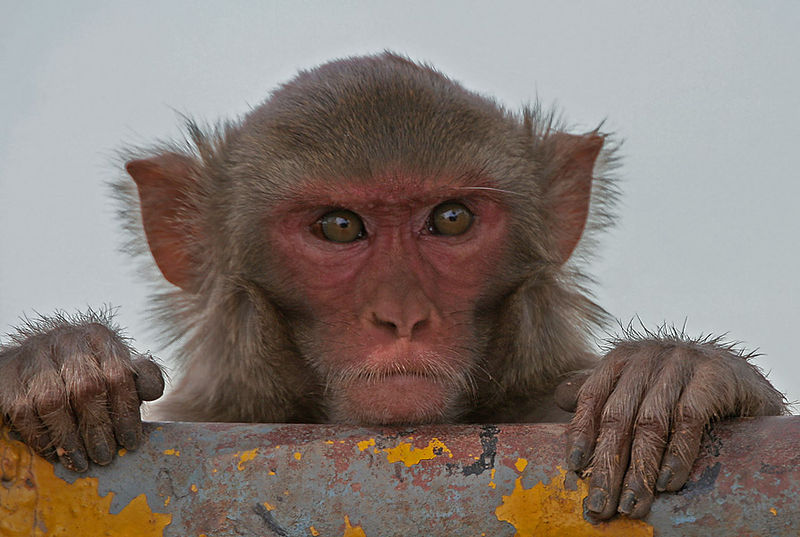A University of Wisconsin study shows monkeys that eat less food live longer and have fewer age-related diseases. The latest research on calorie reduction contradicts an earlier study by the National Institute of Aging.
In this study, adult rhesus monkeys had their daily caloric intake cut by 30 percent. Others in a control group ate as much as they wanted. The control group monkeys had three times the risk of disease and death.
Ricki Colman, a scientist at the Wisconsin National Primate Research Center, says the calorie cutting study didn’t reveal how much longer monkeys live if fed less food.
News with a little more humanity
WPR’s “Wisconsin Today” newsletter keeps you connected to the state you love without feeling overwhelmed. No paywall. No agenda. No corporate filter.
“We still have animals alive in the study, so we don’t at this point really know how much it would extend life,” said Colman. “We’re hopeful it would match with rodent studies that show the degree of life extension matches pretty closely to the degree of calorie restriction.”
An earlier, larger study on monkeys done by the National Institute of Aging found no statistical benefit to severe calorie restriction. But Colman says that study may have been flawed because she believes the control group was underfed due to the way food intake was calculated.
Colman says studies on calories and aging are a research tool, not a lifestyle recommendation for people.
“We would never suggest that this be done in people,” said Colman. “There are people who choose to do it. It’s incredibly difficult. The whole point is to have this nutritionally complete healthy diet, but in a smaller amount. That is very hard to accomplish.”
Colman says the calorie studies may lead to drugs that can mimic the positive health effects of eating less.
Wisconsin Public Radio, © Copyright 2026, Board of Regents of the University of Wisconsin System and Wisconsin Educational Communications Board.





